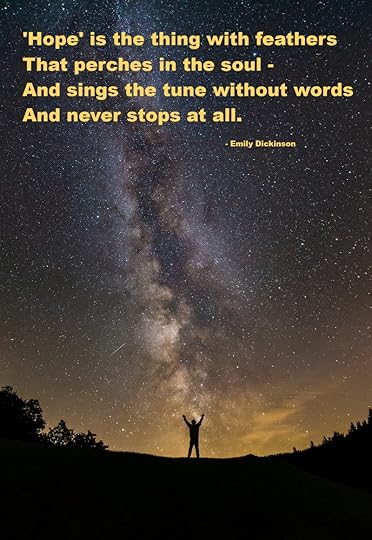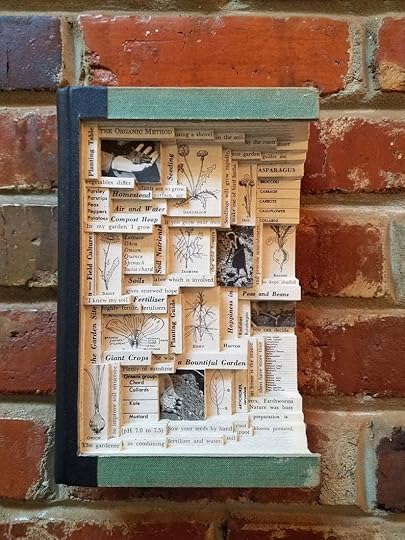B.V. Lawson's Blog: In Reference to Murder, page 113
July 18, 2020
Quote of the Week
July 17, 2020
2020 Strand Critics Awards
The Strand Magazine announced the nominations for the 2020 Strand Critics Awards. Recognizing excellence in the field of mystery fiction and publishing, the annual Strand Critics Awards are judged by a select group of book critics and journalists. This year’s judges include talent from NPR, USA Today, LA Times, and The Washington Post. In addition to Best Mystery Novel and Best Debut, The Strand Magazine’s Lifetime Achievement Awards go to Tess Gerritsen and Walter Mosley.
Best Mystery Novel
Big Sky by Kate Atkinson (Little, Brown and Co.)
The Lost Man by Jane Harper (Flatiron Books)
The Sentence is Death by Anthony Horowitz (Harper)
Lady in the Lake by Laura Lippman (William Morrow)
Heaven, My Home by Attica Locke (Mulholland Books)
The Border by Don Winslow (William Morrow)
Best Debut Novel
Scrublands by Chris Hammer (Atria Books)
Miracle Creek by Angie Kim (Sarah Crichton Books, FSG)
One Night Gone by Tara Laskowski (Graydon House)
The Silent Patient by Alex Michaelides (Celadon Books)
Three-Fifths by John Vercher (Agora Books)






 Related StoriesMacavity MagicFamous ShamusThe Agatha Awards Arrive
Related StoriesMacavity MagicFamous ShamusThe Agatha Awards Arrive
FFB: The Hand in the Glove
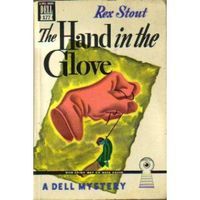 Viewed from a contemporary perspective, it's hard to recall a time when there weren't female detectives the likes of V.I. Warshawski, Kinsey Millhone, Tess Monaghan and Sharon McCone, but back in the 1930s they were almost nonexistent. As a child, I went through my fair share of Nero Wolfe stories by Rex Stout, among the many books read under the covers with a flashlight to circumvent the parental "go to bed" commandment. But at the time I never read or even knew of Stout's female detective, Theodolinda "Dol" Bonner, who came to being in the standalone novel The Hand in the Glove in 1937, one of the very first female private eyes.
Viewed from a contemporary perspective, it's hard to recall a time when there weren't female detectives the likes of V.I. Warshawski, Kinsey Millhone, Tess Monaghan and Sharon McCone, but back in the 1930s they were almost nonexistent. As a child, I went through my fair share of Nero Wolfe stories by Rex Stout, among the many books read under the covers with a flashlight to circumvent the parental "go to bed" commandment. But at the time I never read or even knew of Stout's female detective, Theodolinda "Dol" Bonner, who came to being in the standalone novel The Hand in the Glove in 1937, one of the very first female private eyes.
Although Stout only gave Bonner one solo outing, she also guest-starred in some of the Nero Wolfe stories, one of the few women Wolfe tolerated perhaps because she herself claimed to have been "inoculated against" men, even her suitor, the newspaperman Len Chisholm. Although The Hand in the Glove is a contemporary of the Nero Wolfe/Archie Goodwin titles, it was written in the third person narrative, not Archie's sarcastic first-person. Even so, it still has some of the hallmark wit that graces the Wolfe/Goodwin novels. In the book, a religious charlatan has charmed the wife of wealthy industrialist, P.L. Storrs, who decides he needs a private investigator to look into the man and hires Bonner, even though he doesn't approve of female detectives. But when she arrives at Storrs' country estate, she instead finds the body of her client and a garden party filled with a bouquet of suspects.
Bonner isn't quite the fully realized, tough-as-nails P.I. of the 21st century, sending out mixed messages about her ability to do the job as a woman, perhaps mirroring the changing-but-still-traditional views of women in Stout's day. Bonner begins the novel as part of a two-woman firm, Bonner and Raffray, although the Raffray half soon dissolves, Bonner being disgusted about Raffray's submissiveness to her fiancée. Yet, Bonner concedes she herself decided to be a detective on flimsy grounds, adding, "I made a long list of all the activities I might undertake on my own. They all seemed monotonous or distasteful except two or three, and I flipped a coin to decide between detective and landscape design." Although she's a smart cookie and solves the crimes where the male detectives in the case don't, she's also squeamish about seeing corpses and faints after she shoots a criminal.
After Dol first appeared, Stout's New York editor wrote to her London counterpart, "The Hand in the Glove is doing almost as well as Nero, but whether or not there will be another Dol Bonner mystery we can't be sure." Turns out, it was twenty years later that she reappeared, as Wolfe's operative in the 1956 Too Many Detectives. Anthony Boucher noted of these later appearances, that while Bonner was Archie's age, it was Wolfe who made "sheep's eyes" at her, inviting her to breakfast and dinner and seating her at his right. The confused Archie, taken by Bonners' pretty assistant Sally Colt, wonders if "there might be some flaw in my attitude toward female dicks," and concludes, "If she hooks him and Sally hooks me, we can can all solve cases together and dominate the field."
The Thrilling Detective site points out that In 1992, NBC dusted off the rights to The Hand In The Glove and made a TV movie (under the title Lady Against the Odds) as a vehicle for actress Crystal Bernard (of the sitcom Wings), moving the setting up a few years to World War II. According to People Magazine, it was an "uninvolving and ludicrously unconvincing...turkey." Still, it did win an Outstanding Individual Achievement in Cinematography for a Miniseries or a Special for cinematographer Bradford May. So at least it looked marvelous.







July 16, 2020
Macavity Magic
The finalists for the Macavity Awards were announced today. The honorees are nominated by members of Mystery Readers International, subscribers to Mystery Readers Journal, and friends of MRI. The winners will be announced at opening ceremonies at the Virtual Sacramento Bouchercon. Congratulations to all. (HT to Mystery Fanfare.)
Best Mystery Novel
Your House Will Pay by Steph Cha (Ecco)
This Tender Land by William Kent Krueger (Atria)
Lady in the Lake by Laura Lippman (Wm. Morrow)
The Chain by Adrian McKinty (Mulholland)
The Murder List by Hank Philippi Ryan (Forge)
Sarah Jane by James Sallis (Soho Crime)
Best First Mystery
The Ninja Daughter by Tori Eldridge (Agora Books)
My Lovely Wife by Samantha Downing (Penguin)
Miracle Creek by Angie Kim (Sarah Crichton Books)
One Night Gone by Tara Laskowski (Graydon House)
Call Me Evie by J.P. Pomare (G.P. Putnam's Sons)
American Spy by Lauren Wilkinson (Random House)
Best Mystery Short Story
“West Texas Barbecue” by Michael Chandos (The Eyes of Texas, edited by Michael Bracken—Down & Out Books)
“Alex's Choice” by Barb Goffman (Crime Travel, edited by Barb Goffman—Wildside Press)
“The Cardboard Box” by Terence Faherty (Ellery Queen’s Mystery Magazine, Jan/Feb 2019)
"Whiteout” by G.M. Malliet (EQMM, Jan/Feb 2019)
“Brother’s Keeper” by Dave Zeltserman (EQMM, May/June 2019)
“Better Days,” by Art Taylor (EQMM, May/June 2019)
Best Mystery Nonfiction/Critical
Hitchcock and the Censors by John Billheimer (University Press of Kentucky)
Frederic Dannay, Ellery Queen’s Mystery Magazine and the Art of the Detective Short Story by Laird R. Blackwell (McFarland)
Beyond the Thirty-Nine Steps: A Life of John Buchan by Ursula Buchan (Bloomsbury)
Norco '80: The True Story of the Most Spectacular Bank Robbery in American History by Peter Houlahan (Counterpoint)
The Mutual Admiration Society: How Dorothy L. Sayers and Her Oxford Circle Remade the World for Women, by Mo Moulton (Basic Books)
Indecent Advances: A Hidden History of True Crime and Prejudice Before Stonewall by James Polchin (Counterpoint Press)
Sue Feder Memorial Award for Best Historical Mystery
Murder Knocks Twice by Susanna Calkins (Minotaur)
The Pearl Dagger by L.A. Chandlar (Kensington)
A Lady’s Guide to Gossip and Murder by Dianne Freeman (Kensington)
Satapur Moonstone by Sujata Massey (Soho Crime)
Charity’s Burden by Edith Maxwell (Midnight Ink)
The Secrets We Kept by Lara Prescott (Vintage)






 Related StoriesFamous ShamusThe Agatha Awards ArriveHammett's Heroes
Related StoriesFamous ShamusThe Agatha Awards ArriveHammett's Heroes
Mystery Melange
The International Thriller Writers announced this year's winners of the ITW Thriller Awards (and check out all the finalists here):
Best Hardcover Novel: Adrian Mckinty, The Chain
Best First Novel: Angie Kim, Miracle Creek
Best Paperback Original Novel: Dervla Mctiernan, The Scholar
Best Short Story: Tara Laskowski, “The Long-Term Tenant” (EQMM)
Best E-Book Original Novel: Kerry Wilkinson, Close To You
Best Young Adult Novel: Tom Ryan, Keep This To Yourself
ThrillerMaster Lifetime Achievement Award recipient: Diana Gabaldon
2020 Silver Bullet Award recipient: Michael Connelly
2020 Thriller Legend Award recipient: Writers House (a literary agency)
Mystery in the Midlands, a mid-summer conference sponsored by the Palmetto Chapter of Sisters in Crime and the Southeastern Region of Mystery Writers of America, is going online and offering free registration. The date is Saturday, July 25, 2020, 10:00 am - 2:30 pm ET, with scheduled events to include a half-day workshop moderated by Dana Kaye. The special guests will be Charlaine Harris; John Floyd; Tara Laskowski; Art Taylor; Alexia Gordon; Toni L.P. Kelner; and Gigi Pandian. Charlaine Harris, Dana Cameron, and Jeffery Deaver will also participate in a panel on turning novels into screenplays.
Also going virtual is the 2020 Tampa Bay Times Festival of Reading, scheduled for Nov. 12-14. Special guests will include James Lee Burke, talking about A Private Cathedral, his 40th book and his 23rd about Louisiana police detective Dave Robicheaux; Michael Connelly, author of the 22 Harry Bosch books, about his upcoming book, The Law of Innocence, the sixth in his series about “Lincoln Lawyer” Mickey Haller; Laura Lippman, author of the bestselling Tess Monaghan mystery series and other novels, including Sunburn and Lady in the Lake; and Colson Whitehead, who won this year’s Pulitzer Prize for fiction for The Nickel Boys, his compelling novel inspired by the story of the Florida School for Boys.
AL DÍA News profiled Maria Elvira Bermudez, the "Mexican Agatha Christie." A pioneer of the crime novel and a lawyer by profession, Bermúdez invented the first woman detective of Latin American noir. The mystery genre offered her a tool to express her political ideals including the struggle for women's rights, especially the right to vote.
It appears that a lot of folks are increasing their reading during coronavirus quarantines. As Publishers Weekly reported, in what is perhaps the biggest surprise in publishing since the Covid-19 pandemic began roiling the U.S. economy, unit sales of print books in the first half of 2020 were up 2.8% over the same period in 2019 (at outlets the report to NPD BookScan). As you might expect, children's book and educational materials led the way, but the adult fiction category also had a 2.9% increase in the first six months of 2020.
The latest crime poem at the 5-2 Weekly is "Firebug" by Rusty Barnes.
In the Q&A roundup, Deborah Kalb interviewed Kevin Myers, a comedian, journalist, and speechwriter, who just published the thriller novel, Hidden Falls; Quentin Bates stopped by the Mrs. Peabody Investigates blog to chat about his latest novel, Cold Malice, featuring Icelandic police officer Gunnhildur ‘Gunna’ Gísladóttir; CrimeReads chatted with Smith Henderson and Jon Marc Smith on the ups and downs of collaborative writing and the years-long quest to create a thriller; CR also welcomed Steve Berry to talk about his Cotton Malone series and his slow ride to bestseller status.






 Related StoriesMystery Melange
Related StoriesMystery Melange
July 13, 2020
Media Murder for Monday
 It's the start of a new week and that means it's time for a brand-new roundup of crime drama news:
It's the start of a new week and that means it's time for a brand-new roundup of crime drama news:
THE BIG SCREEN/MOVIES
Screen Gems has preemptively acquired the spec script, Sabine, written and produced by author Gregg Hurwitz (Orphan X) and screenwriter, Philip Eisner (Event Horizon). Sabine centers around an ambitious young female detective who hunts down a determined serial killer and begins to see the world through the killer’s eyes. Hurwitz and Eisner recently also wrote the thriller, Sweet Girl, which is in post-production for Netflix starring Jason Momoa.
Apple Studios has acquired the rights to adapt Snow Blind, a thriller based on a graphic novel of the same name that will star Jake Gyllenhaal. Gustav Möller (The Guilty) will direct the film based on the story by Ollie Masters and published by BOOM! Studios in 2017. Snow Blind tells the story of a high school student in Alaska whose life is turned upside down when he posts a photo of his dad online. He soon thereafter learns that he and his family are in the Witness Protection Program and are now being hunted by not only the FBI but also a man out for revenge who invades their small town.
Brad Pitt is set to star in Bullet Train, the Sony Pictures action movie that also recently announced the hiring of director David Leitch (Fast & Furious Presents: Hobbs & Shaw). Zak Olkewicz wrote the script, based on the 2010 Japanese novel, Maria Beetle, by Kotaro Isaka. In the novel, five assassins find themselves on a fast-moving bullet train from Tokyo to Morioka with only a few stops in between. They discover their missions are intertwined, and the question becomes—who will make it off the train alive and what awaits them at the terminal station?
The Nacelle Company, Stone Canyon Entertainment, and producer Devon Shepard have optioned the rights to the life story of former Philadelphia police officer, Jeffrey Walker. Walker, an African-American, spent his 20-year career as a narcotics officer in a system that harasses, unfairly arrests, and often kills those in the very community from which he came. The project would tell the story of Walker’s redemption, as he hits bottom and then begins the courageous work of helping dismantle that unjust system—one he once helped to thrive.
The IRA thriller, Borderland, has rounded out its cast, which will include John Boyega (Star Wars), Jack Reynor (Midsommar), Jodie Turner-Smith (Queen & Slim), and Felicity Jones (The Theory Of Everything). The film follows an Irish paramilitary, Michael (Reynor), who witnesses the shooting of his pregnant wife at the hands of an SAS sergeant named Tempest (Boyega) when a border ambush goes wrong. When Tempest is sent back to London to lead a covert counter-terrorist operation, Michael joins a ruthless active service unit (ASU) wreaking havoc in the capital. For Michael, the mission is personal – to hunt down Tempest – and he’ll stop at nothing to avenge his wife’s death.
Chinese megastar Donnie Yen is set to star in and produce the crime thriller, Golden Empire, in which he will play a notorious drug kingpin who hits the top of the most wanted list for both the U.S. and Mexican governments. The film will explore the complexities of the character, showcasing the inner turmoil of one of the world’s most successful multinational drug lords.
TELEVISION/STREAMING SERVICES
Mad Men creator, Matthew Weiner, has a new series in the works. Although plot details are being kept under wraps, the project is being described as a "mystery dramedy." Weiner is writing the series and will also executive produce and direct. Should it move forward, the show would mark Weiner’s return to the world of basic cable, though the project could potentially end up on FX and Hulu as well.
HBO Max has given a series commitment to Gotham City, a spinoff of Matt Reeves's upcoming film, The Batman (starring Robert Pattinson). The series on HBO Max will be set inside the Gotham City Police Department and “will build upon the motion picture’s examination of the anatomy of corruption in Gotham City.” The series would be the second to focus on the Gotham police following Fox’s Gotham, which starred Ben McKenzie as Commissioner Gordon in the days before Bruce Wayne became Batman.
HBO Max has also put in development Rip Crew, a crime drama from Code Black creator Michael Seitzman, executive producer Mike Weiss, and ABC Signature Studios. Written by Weiss, the story follows a disgraced ex-FBI agent turned criminology professor who discovers that his most gifted students are planning a massive heist. He then decides to scoop their score and become the type of criminal he used to chase.
Damian Lewis and Dominic West are in negotiations to headline and executive produce a limited series adaptation of Ben Macintyre’s bestselling Cold War espionage thriller, A Spy Among Friends, for Spectrum Originals and UK streamer BritBox. The six-episode project comes from former Homeland executive producer Alexander Cary, Sony Pictures Television and ITV Studios. It follows the defection of notorious British intelligence officer and KGB double agent, Kim Philby (West), through the lens of his complex relationship with MI6 colleague and close friend, Nicholas Elliott (Lewis).
Showtime is developing La Bravura, a one-hour psychological thriller dramedy from veteran showrunner Tad Quill, S.W.A.T. co-creator Shawn Ryan, and Sony Pictures Television. Quill will serve as writer on the series, which is about a husband whose marriage comes under strain after he films a behind-the-scenes documentary of his wife's elaborate heist of the Getty Museum.
Elisabeth Moss will star as infamous Texas murderer, Candy Montgomery, in the Universal Content Productions limited series, Candy. The project comes from Robin Veith and Nick Antosca, the duo behind Hulu's true-crime limited series, The Act. Candy is set in 1980 Texas, when Candy Montgomery (Moss) seemingly had it all – loving husband with a good job, a daughter and a son, a nice house in the brand new suburbs. So why did she kill her friend from church with an ax?
Orange is the New Black alum, Dascha Polanco, is set as a lead opposite Tate Donovan and Melissa Leo in the Fox pilot, Blood Relative. Tracie Thoms (Truth Be Told) and Sarah Catherine Hook (Conjuring 3) also have been cast as series regulars in the forensic genealogy-themed crime drama from writer-producer Chris Levinson and producer Liza Chasin.
Vienna Blood, the adaptation of Frank Tallis’ novels, has been renewed for a second season by Germany’s ZDF and Austria’s ORF, while BBC Two and PBS will also air the series. The new three feature-length episodes will be written by Sherlock's Steve Thompson and directed by Robert Dornhelm (Anne Frank: The Whole Story). The first series starred Matthew Beard as central character Max Liebermann, the protégé of Sigmund Freud, and was set in 1900s Vienna. When Liebermann comes into contact with Oskar Rheinhardt (played by Tatort’s Juergen Maurer), a detective struggling with a strange murder case, he is called to help him solve the investigation.
PODCASTS/VIDEO/RADIO/AUDIO
A new Mysteryrat's Maze Podcast is up featuring an excerpt from Clean Up on Aisle Six by Daniel Stallings, as read by actor Ian Jones.
Writer Types host, Eric Beetner, was joined by authors Lee Matthew Goldberg (The Ancestor), Lydia Kang (Opium and Absinthe). and Timothy Jay Smith (Fire on the Island).
Suspense Magazine's Beyond the Cover welcomed Leslie Lutz to talk about her debut thriller, Fractured Tide.
Meet the Thriller Author featured broadcaster-turned-author Glenn Dyer, discussing the first two books in his historical Conor Thorn thriller series, The Torch Betrayal and The Ultra Betrayal.
The Spybrary podcast reviewed three Charles McCarry spy novels in the author's Paul Christopher series.
Mugshots: My Favorite Detective Stories welcomed Rick Pullen, an award-winning investigative reporter, magazine editor, and author of the Naked City series of thrillers as well as The Apprentice, about a rookie reporter thrust into the Washington political nightmare.
Writer's Detective Bureau, hosted by veteran Police Detective Adam Richardson, discussed what happens when a cop gets injured on duty; who handles the civil and criminal aspects of an insider trading investigation; and what kind of data is available to a detective investigating the homicide of a foreign national.
It Was a Dark and Stormy Book Club chatted with Heather Young, author of The Lost Girls, which won the Strand Award for Best First Novel and was nominated for an Edgar Award.
If you're a fan of true-crime podcasts, Parade published a listing of "32 True Crime Podcasts Worthy of an Immediate Binge-Listen."






 Related StoriesMedia Murder for Monday
Related StoriesMedia Murder for Monday
July 9, 2020
Mystery Melange
CrimeFest announced the winners for the 2020 CrimeFest Awards. The event, scheduled to take place in Bristol, UK from June 4 thru 7, was cancelled, but organizers announced award winners online at crimefest.com and via its social media pages on Tuesday July 7 (HT to Shots Magazine). Here are the winners (and you can see all the other finalists via this link):
Debut Crime Novel Award: BLOOD & SUGAR, by Laura Shepherd-Robinson
Sounds of Crime Award: BLUE MOON, by Lee Child, read by Jeff Harding
eDunnit Award: TO THE LIONS, by Holly Watt
H.R.F. Keating Award: THE HOODED GUNMAN, by John Curran
Last Laugh Award: WORST CASE SCENARIO, by Helen FitzGerald
Best Crime Novel for Children Award: MALAMANDER, by Thomas Taylor
Best Crime Novel for Young Adults Award: BEAUTY SLEEP, by Kathryn Evans
Jiro Kimura of The Gumshoe Site also noted that Walter Mosley's Down the River Unto the Sea has won the 2020 Falcon Award from The Maltese Falcon Society Japan for the best hardboiled/private eye novel published in Japan in the previous year. Previous winners have included Don Winslow (a four-time winner), Dennis Lehane, Michael Connelly, and Robert Crais.
Killer Nashville is the latest event to announce it's cancelling for 2020 due to the pandemic due to the new travel bans and the recent upsurge of cases in Tennessee. They're going to postpone Killer Nashville 2020 and roll everyone's registrations forward to KN 2021 (August 19-22, 2021). Founder Clay Stafford added that "It was a hard choice, but the safety and well-being of our friends is our most important consideration. These are tough and uncharted times." This year's special guests were to be Lisa Black, J.T. Ellison, and Walter Mosley.
Although many mystery conferences are going online or being postponed until next year, Covid-19 has had its first permanent event casualty. Magna cum Murder announced on Facebook that because of deep budget cuts, the university has made the decision to close the E. B. & Bertha C. Ball Center where the annual festivities were held. This year's event was scheduled for October 23-25 in Indianapolis with Guest of Honor C.J. Box and International Guest of Honor Rt. Hon. David Trimble. The event has been frequently praised in the past by attendees and authors alike as more accessible and personable than many of the larger conferences.
The Guardian reported that crime fiction sales are booming during the pandemic. Readers have been "pouncing on stories of murder and revenge," with nearly 120,000 more crime and thriller books bought in the last two weeks of June compared to the same point last year. The genre became the UK’s most popular over the period, leapfrogging both general and children’s fiction, as readers snapped up titles including Lee Child’s latest Jack Reacher thriller, Blue Moon, Lisa Jewell’s dark The Family Upstairs, and Peter May’s prescient Lockdown.
Bloomberg had a breakdown analysis of "Who Did What in Every Agatha Christie Murder Mystery Novel," divided into graphs by the killer's age, gender, profession, relationship, motive, and method.
This week's crime poem at the 5-2 Weekly is "Spent Casings" by Terry Dawley.






 Related StoriesMystery Melange
Related StoriesMystery Melange
July 8, 2020
Author R&R with Sheila Kohler
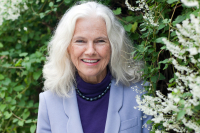 Sheila Kohler was born in Johannesburg, South Africa. She is the author of a memoir, Once We Were Sisters and fourteen works of fiction including the novels Dreaming for Freud, Becoming Jane Eyre, and Cracks, which was nominated for the IMPAC Dublin Literary Award and made into a film starring Eva Green. Her work has been featured in the New York Times and O Magazine and included in the Best American Short Stories. She has twice won an O. Henry Prize, as well as an Open Fiction Award, a Willa Cather Prize, and a Smart Family Foundation Prize. She teaches at Princeton University and lives in New York City.
Sheila Kohler was born in Johannesburg, South Africa. She is the author of a memoir, Once We Were Sisters and fourteen works of fiction including the novels Dreaming for Freud, Becoming Jane Eyre, and Cracks, which was nominated for the IMPAC Dublin Literary Award and made into a film starring Eva Green. Her work has been featured in the New York Times and O Magazine and included in the Best American Short Stories. She has twice won an O. Henry Prize, as well as an Open Fiction Award, a Willa Cather Prize, and a Smart Family Foundation Prize. She teaches at Princeton University and lives in New York City.
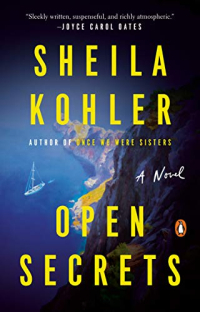 Her latest novel is Open Secrets, in which the lies between a husband and wife are revealed, unraveling their family in a story that moves between the French Riviera, Switzerland, and Amagansett. When Michel, a Swiss banker, discovers his wife Alice's betrayal he turns for help to a Russian client who leads him into unknown territory, endangering not only his own life but that of Alice, and above all, his fourteen-year-old daughter, Pamela. Their charmed life—a beautiful house on the French Riviera, elegant vacations, and boarding school in Switzerland for Pamela—is not all that it seems. As the repercussions of Michel's illicit deals move closer in around them, Alice finds herself in Amagansett with her artist sister who is having a crisis of her own, while the danger circles around Pamela. Open Secrets is a suspenseful novel about relationships, family, love and the inescapable consequences of one's own actions.
Her latest novel is Open Secrets, in which the lies between a husband and wife are revealed, unraveling their family in a story that moves between the French Riviera, Switzerland, and Amagansett. When Michel, a Swiss banker, discovers his wife Alice's betrayal he turns for help to a Russian client who leads him into unknown territory, endangering not only his own life but that of Alice, and above all, his fourteen-year-old daughter, Pamela. Their charmed life—a beautiful house on the French Riviera, elegant vacations, and boarding school in Switzerland for Pamela—is not all that it seems. As the repercussions of Michel's illicit deals move closer in around them, Alice finds herself in Amagansett with her artist sister who is having a crisis of her own, while the danger circles around Pamela. Open Secrets is a suspenseful novel about relationships, family, love and the inescapable consequences of one's own actions.
Sheila stops by In Reference to Murder to take some Author R&R about researching and writing the book:
On research and writing
All fiction attempts to portray life in a believable way whether it is science fiction, magic realism, or historical fiction. The reader needs to suspend disbelief to be interested by the story. This verisimilitude often comes with the authority of the voice. There are writers who manage to make us believe even the most extraordinary of events and others whose voice does not ring true. I have often had students who protest that something really happened but on the page render this event unbelievable. How, then, to make something believable?
When I was writing my first historical novel, The Children of Pithiviers, much of which takes place in Vichy France in the early 40's, I had some advice from my fellow countryman and Nobel prize winner: John Coetzee. He told me, "Don't stay too close to the facts." Certainly it is a more difficult task to blatantly alter historical facts. Research gives us the necessary confidence and the sort of precise detail that enables us to create a believable world, a world which rings true on the page. Even Don Quixote in his maddest moments renders his imaginary knights with marvelously real detail.
With my latest book, Open Secrets, I spoke to bankers, I read accounts of banks and banking systems in various parts of the world; I had also first hand dealings with Swiss banks through my sister whose money was stolen from a joint account in a Swiss bank with a numbered account by her husband, yet in the writing of the book, I found it necessary to take some distance from all of these "facts." I had to shut up the books and let the story come to me on the page through the characters who may have originated to some extent in my life but took on a life of their own. The story one is telling has its own truth which we need to discover in the process of writing it, or so it seems to me.
You can learn more about Sheila Kohler and Open Secrets via her website and follow her on Facebook and Twitter. She also has a live online Q&A with Sheridan Hay via the Center for Fiction in New York coming up on July 14. Open Secrets is available this week via all major book retailers.







July 6, 2020
Media Murder for Monday
 It's the start of a new week and that means it's time for a brand-new roundup of crime drama news:
It's the start of a new week and that means it's time for a brand-new roundup of crime drama news:
THE BIG SCREEN/MOVIES
Solstice Studios is partnering with Fast and Furious producers on the action thriller, Shadow Run, from Magnum P.I. reboot scribe, Joe Gazzam. The project tells the story of a CIA agent who devoted five years of his life to capturing the Russian spy who killed his wife. His triumph turns into a nightmare when he’s told that, not only is America trading the spy away – but he’s been assigned to make the swap. Now he’s stuck with his mortal enemy on an off-the-books "shadow run" where nothing happens as planned and everyone is trying to kill them.
The S.H.U., a social thriller starring Edi Gathegi (Twilight Saga; X-Men: First Class), has been picked up for world sales by Los Angeles-based Premiere Entertainment Group. The story follows an affluent African American psychiatrist (Gathegi) into federal prison after he is found guilty of murdering his wife. A victim of systematic racism, he eventually finds himself in solitary confinement, slowly descending into madness and pushed to breaking point by an abusive female guard.
A trailer was released for The Tax Collector, which centers on Shia LaBeouf’s Creeper and Bobby Soto’s David, two "tax collectors" who work for a crime lord known as Wizard, collecting his cut of the profits from local gangs’ illicit dealings and operations. The Tax Collector drops on VOD and in select theaters on August 7.
TELEVISION/STREAMING SERVICES
Evil Doghouse Studios has secured the rights to Lars Lenth's popular Norwegian book series about eco-terrorist, Rino Gulliksen. Lenth’s book series, not yet released in the U.S., follows lawyer Leonard Vangen and the misanthropic muscle-for-hire Gulliksen as the two find themselves unlikely allies in the darkly comedic eco-thriller.
Éric Rochant, the creator of breakout French spy drama The Bureau, is headed for his U.S. television debut, an untitled global spy drama that centers on the lives of intelligence officers from the U.S., China, Russia, UK, and France. The series will follow these spies, who are involved in missions that make them meet, fight, or manipulate each other—either as allies or enemies—in the field and in cyberspace.
Fox is planning to produce all six of its pilot orders for this year’s development season and will continue to ramp up its off-cycle pilot orders. The pickups include the drama, The Cleaning Lady, starring Élodie Yung as an on-call cleaning lady for the mob, and Blood Relative, a forensic genealogy-themed crime drama starring Tyrone Marshall Brown, Tate Donovan, and Melissa Leo.
ABC announced plans to shoot five pilots once production can safely resume. One of those is Rebel, inspired by the life of Erin Brockovich. It stars Katey Segal as Annie "Rebel" Bello, a blue-collar legal advocate without a law degree—a funny, messy, brilliant and fearless woman who cares desperately about the causes she fights for and the people she loves.
ABC will not be moving forward with the Revenge spin-off it was developing for next year's 2020-2021 season. The new series would have followed the same blueprint the original established with Emily Thorne (Emily VanCamp), but this time following a young Latinx immigrant, who would be "guided by one of the original series' favorite characters" to exact revenge on the people who murdered her mother. There was much speculation that tech mogul Nolan Ross (Gabriel Mann), Emily's main partner-in-crime in the original series, would have been been part of the new project and that the spin-off would be turned into an anthology series.
CBS’s action crime drama, Magnum P.I., starring Jay Hernandez, is targeting a mid-August tentative production start date for its upcoming third season. While a spike in coronavirus infections throughout the continental U.S. is raising doubts about production restart plans in COVID-19 hot spots like California and Georgia, sites like Hawaii have emerged as appealing alternatives, especially since Hawaii has the lowest rate of infection and death of any U.S. state.
PODCASTS/VIDEO/RADIO/AUDIO
Two Crime Writers and a Microphone had a special episode, talking about the Locked Up Festival being held online in support of the Trussell Trust in the UK.
Crime Cafe host, Debbi Mack, interviewed crime writer Saralyn Richard about her Detective Oliver Parrott mystery series.
Writer Types guest co-host, Cheryl Head, joined Eric Beetner to chat with Steve Hockensmith (Holmes on the Range) and Sara Sligar (Take Me Apart).
Speaking of Mysteries welcomed Cathi Stoler to talk about Bar None, the debut title in her "Murder on the Rocks" series.
Suspense Radio's Beyond the Cover was joined by bestselling author Scott Turow to talk about his latest legal thriller, The Last Trial.
It Was a Dark and Stormy Book Club featured a "Cozy Episode," highlighting three cozy mysteries they've enjoyed reading lately.
The Alfred Hitchcock Mystery Magazine podcast featured a reading of Angela Zeman's intriguing, meaningful, and inventive historical story "The First Tale of Roxanne"; and Ellery Queen Mystery Magazine's podcast had author David Dean reading his moving and suspenseful tale, "The Duelist."






 Related StoriesMedia Murder for Monday
Related StoriesMedia Murder for Monday
July 4, 2020
Happy Independence Day
In Reference to Murder
- B.V. Lawson's profile
- 201 followers


